Is Hillary Clinton Really The Thing? By Dennis O’Neil
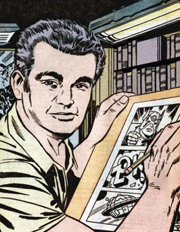 I never talked to either Jack Kirby or Stan Lee about politics, so I don’t really have any idea where they stood on the subject. My guess would be that following their political spoor wouldn’t take you very far west and that they didn’t have much sympathy for the hippie-rebels of the 60s (and here allow me to blush and hide my face). After all, they and their parents (and my parents) fought for a place in the American mainstream because, finally, acceptance meant an increased chance of survival and for those outside the tribe, who suffered the Great Depression, not surviving seemed to be a real possibility. Then here came the snotty kids with their tie-dye and their girly haircuts and their wiseass slogans saying that a place in the tribe was not worth struggling for – in fact, the tribe itself was stinking of corruption.
I never talked to either Jack Kirby or Stan Lee about politics, so I don’t really have any idea where they stood on the subject. My guess would be that following their political spoor wouldn’t take you very far west and that they didn’t have much sympathy for the hippie-rebels of the 60s (and here allow me to blush and hide my face). After all, they and their parents (and my parents) fought for a place in the American mainstream because, finally, acceptance meant an increased chance of survival and for those outside the tribe, who suffered the Great Depression, not surviving seemed to be a real possibility. Then here came the snotty kids with their tie-dye and their girly haircuts and their wiseass slogans saying that a place in the tribe was not worth struggling for – in fact, the tribe itself was stinking of corruption.
Both generations were, in their own way, right; both had a piece of the truth.
Stan and Jack were – are – of the first of the two generations and so they were – are – probably politically a bit to the right of me and maybe you (and my parent and most of my siblings.) But events of the past week make me guess that their greatest creations were liberals. I refer to the Fantastic Four who, along with Spider-Man co-launched Marvel Comics, as one or two of you might have heard. True FF aficionados know, and perhaps relish, the tendency of the members of this supergroup to squabble among themselves. Two of the four, The Human Torch and The Thing, seem particularly apt to indulge in petty argumentation.
Remind you of any particular political group?
Yeah, right. Liberals. Witness the recent news: Ms. Hillary Clinton’s die-hard supporters are threatening to vote for John McCain, the Republican candidate, unless Ms. Clinton’s presidential aspirations are accorded full acknowledgement at the Democratic convention, which will be soaking up media time in about two weeks. This despite the fact that Ms. Clinton has already lost the nomination to Barack Obama, whose crew must be thinking harsh and uncharitable thoughts about the Clintonites.


 The comic book veteran was smiling as he leaned forward to read the lettering on the button fastened to my lapel: Let’s Legalize Pot. His mood changed instantly, to one of anger. He snatched the pin off my jacket, flung it into a wastebasket, and stalked from the room.
The comic book veteran was smiling as he leaned forward to read the lettering on the button fastened to my lapel: Let’s Legalize Pot. His mood changed instantly, to one of anger. He snatched the pin off my jacket, flung it into a wastebasket, and stalked from the room.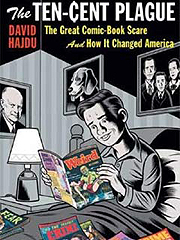 Over the past few years, I’ve come to believe that not everyone gets the same education, even if schools and transcripts are identical. Some folk mentally compartmentalize: church goes here, family here, school stuff here, life in general there. So when they pass tests on what they’ve heard in classrooms, and at the end of a span of time, usually16 years and some august personage hands them a rectangle full of fancy lettering, they’re done with it. No more schooling, and no learning above what’s needed to live comfortably. Schooling in its compartment yonder, not touching this compartment, which is where we live.
Over the past few years, I’ve come to believe that not everyone gets the same education, even if schools and transcripts are identical. Some folk mentally compartmentalize: church goes here, family here, school stuff here, life in general there. So when they pass tests on what they’ve heard in classrooms, and at the end of a span of time, usually16 years and some august personage hands them a rectangle full of fancy lettering, they’re done with it. No more schooling, and no learning above what’s needed to live comfortably. Schooling in its compartment yonder, not touching this compartment, which is where we live. I don’t know when I first saw an English edition of Barefoot Gen. It was probably sometime in the mid 70s, when I was editing for the modest enterprise that has become the mighty Marvel Entertainment. In those days, a lot of stuff crossed editorial desks and we read most of it, if not all. So: Japanese comics? Sure, I’ll give it a look. It was probably my first experience with manga and I remember feeling a mild taste of cognitive dissonance – a perceived disconnect between subject and form. (I am choosing to ignore, because it’s a bit off-subject, the hybrid of cartooning and illustration that’s most superhero art.)
I don’t know when I first saw an English edition of Barefoot Gen. It was probably sometime in the mid 70s, when I was editing for the modest enterprise that has become the mighty Marvel Entertainment. In those days, a lot of stuff crossed editorial desks and we read most of it, if not all. So: Japanese comics? Sure, I’ll give it a look. It was probably my first experience with manga and I remember feeling a mild taste of cognitive dissonance – a perceived disconnect between subject and form. (I am choosing to ignore, because it’s a bit off-subject, the hybrid of cartooning and illustration that’s most superhero art.)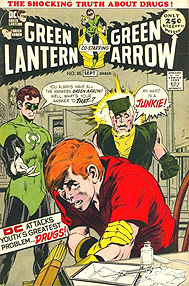 Vinnie Bartilucci said it better than I did. Commenting on a couple of columns that asked, sort of, if the science in comics should be real, Vinnie wrote, “… once a writer chooses to mention actual, proper science, he should get it right.”
Vinnie Bartilucci said it better than I did. Commenting on a couple of columns that asked, sort of, if the science in comics should be real, Vinnie wrote, “… once a writer chooses to mention actual, proper science, he should get it right.”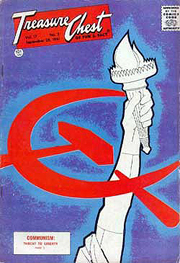
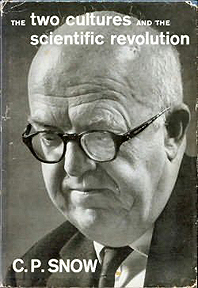 The following will be about a column I didn’t write and it’s Vinnie Bartilucci’s fault. But that’s okay. I forgive him.
The following will be about a column I didn’t write and it’s Vinnie Bartilucci’s fault. But that’s okay. I forgive him. We were the Squires of Science, my friend Mike and I were. He went to public school and I was a sixth- or seventh grader at St. Louise de Marillac, but that didn’t keep us from palling around together, watching Tom Corbett, Space Cadet on his family’s television set and doing chemistry set experiments in his basement. Actually, I don’t remember doing many experiments – we squires weren’t really much into real science – but Mike, who was good with tools, made us a plaque and, well…we believed in science. Maybe not as much as I believed in the Father, Son, and Holy Ghost, but still a lot.
We were the Squires of Science, my friend Mike and I were. He went to public school and I was a sixth- or seventh grader at St. Louise de Marillac, but that didn’t keep us from palling around together, watching Tom Corbett, Space Cadet on his family’s television set and doing chemistry set experiments in his basement. Actually, I don’t remember doing many experiments – we squires weren’t really much into real science – but Mike, who was good with tools, made us a plaque and, well…we believed in science. Maybe not as much as I believed in the Father, Son, and Holy Ghost, but still a lot.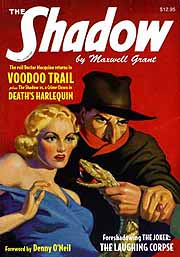
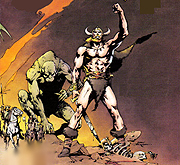 In days of yore, when cowboys and dinosaurs roamed the land and I was an undergraduate in a Jesuit-run university, not knowing exactly what one was supposed to do in a university, much less what the heck I, a butcher’s kid from north St. Louis, was doing at a university, I had what Friedrich Nietzsche might have called a “slave morality.” That is, I felt powerless and I resented and mistrusted every authority figure on the horizon, even the ones who were trying to help me.
In days of yore, when cowboys and dinosaurs roamed the land and I was an undergraduate in a Jesuit-run university, not knowing exactly what one was supposed to do in a university, much less what the heck I, a butcher’s kid from north St. Louis, was doing at a university, I had what Friedrich Nietzsche might have called a “slave morality.” That is, I felt powerless and I resented and mistrusted every authority figure on the horizon, even the ones who were trying to help me.








